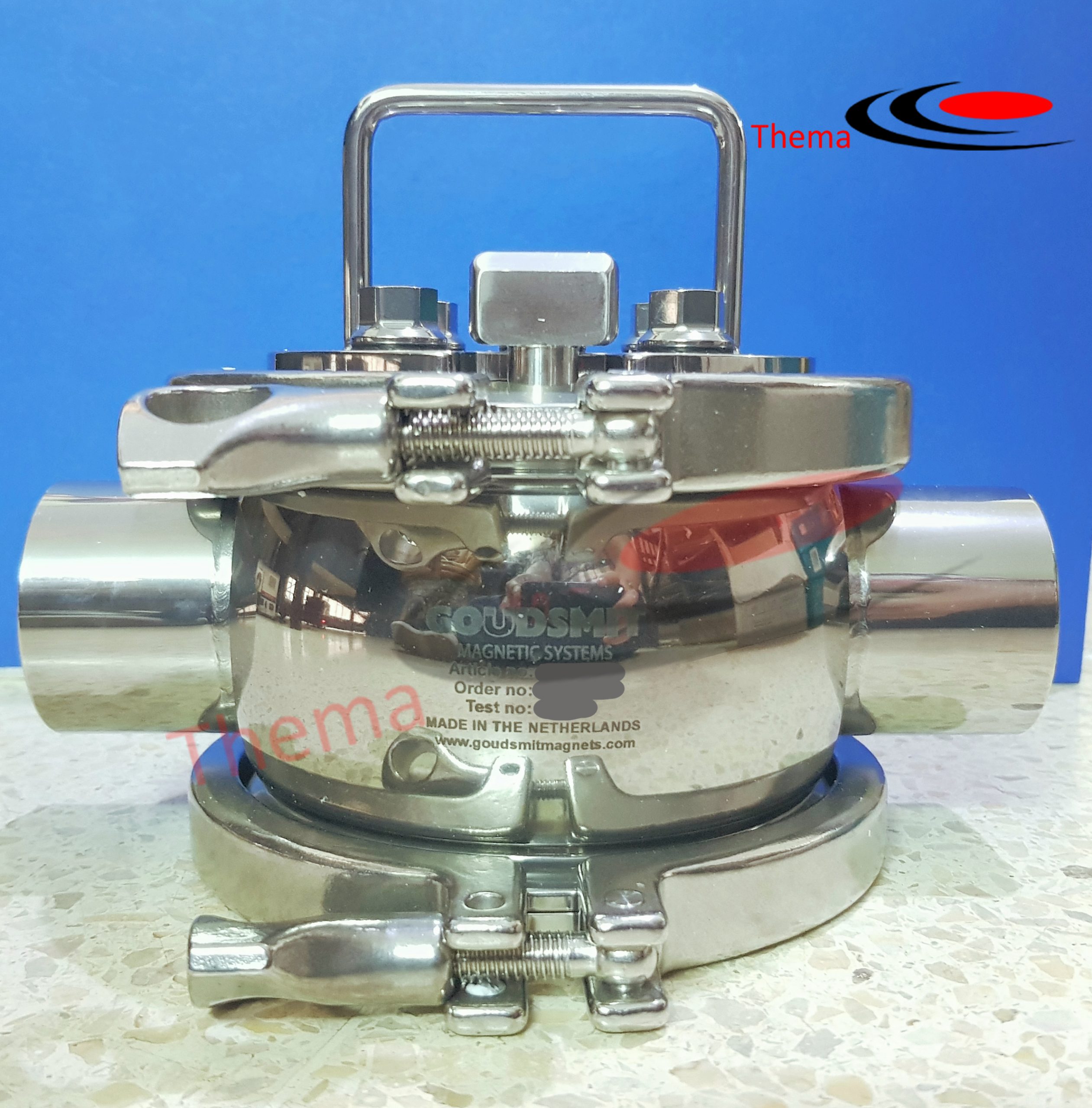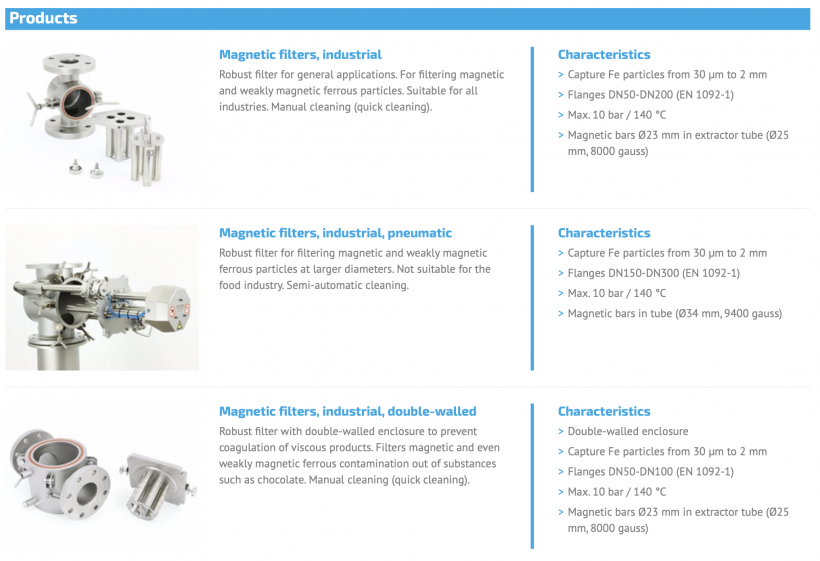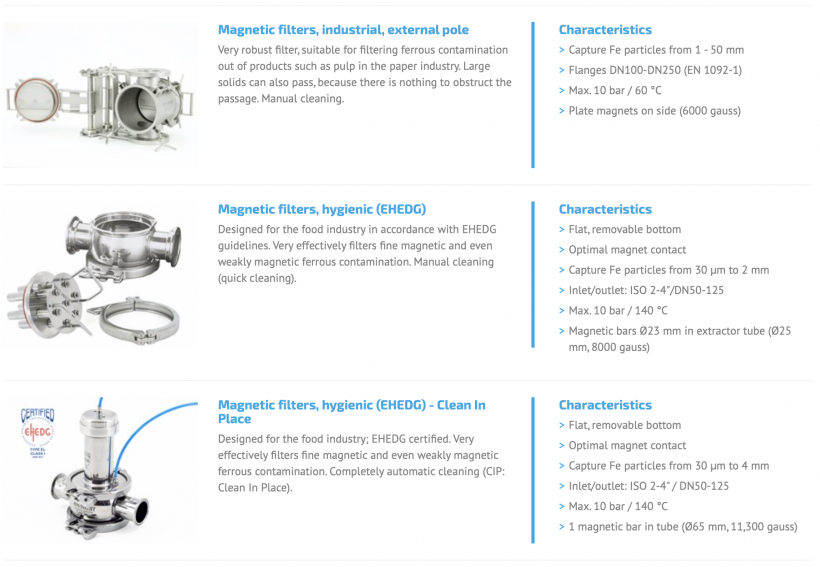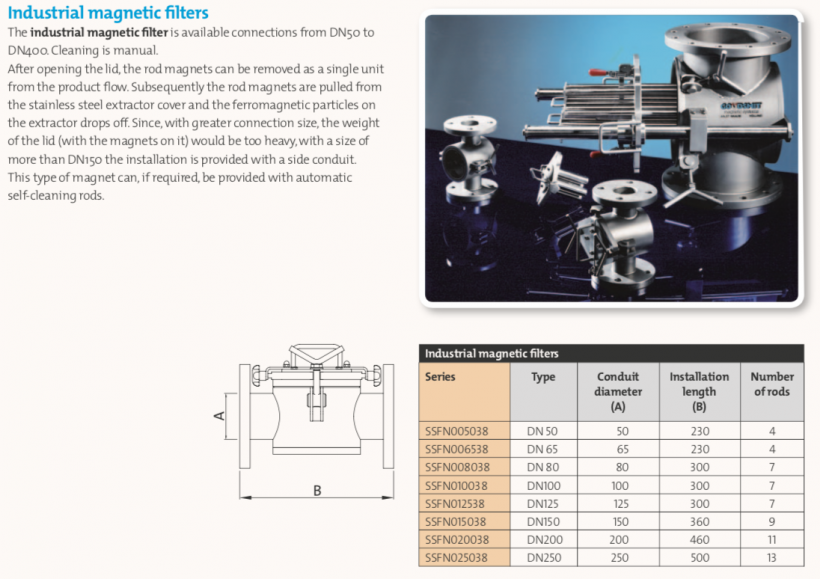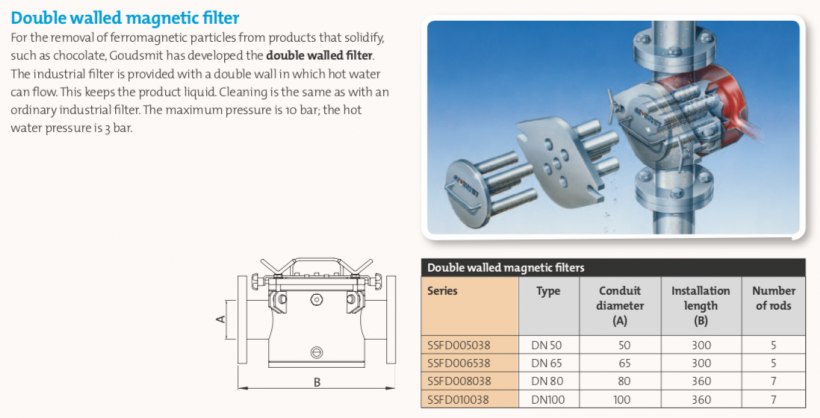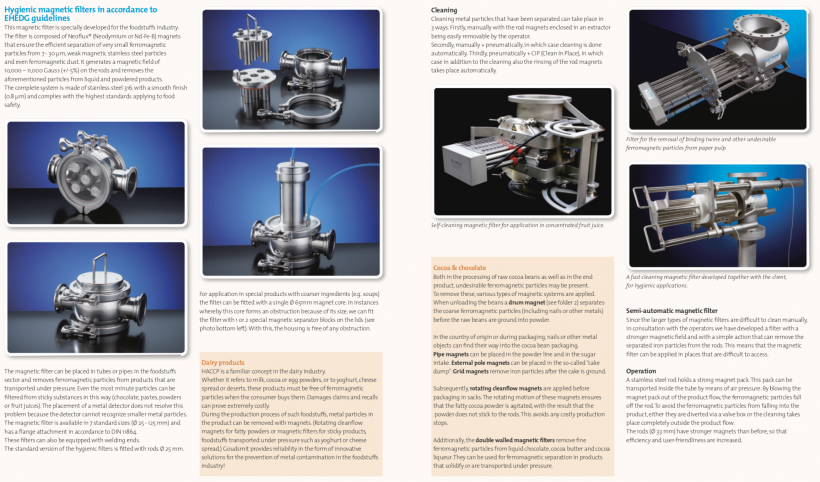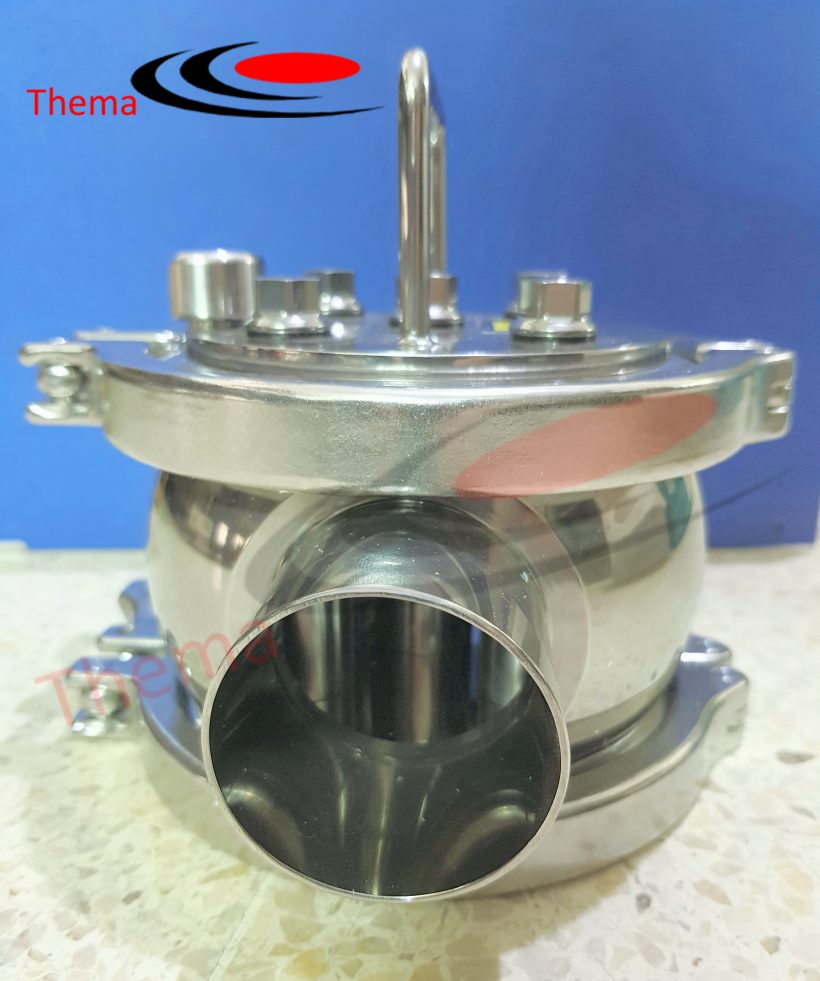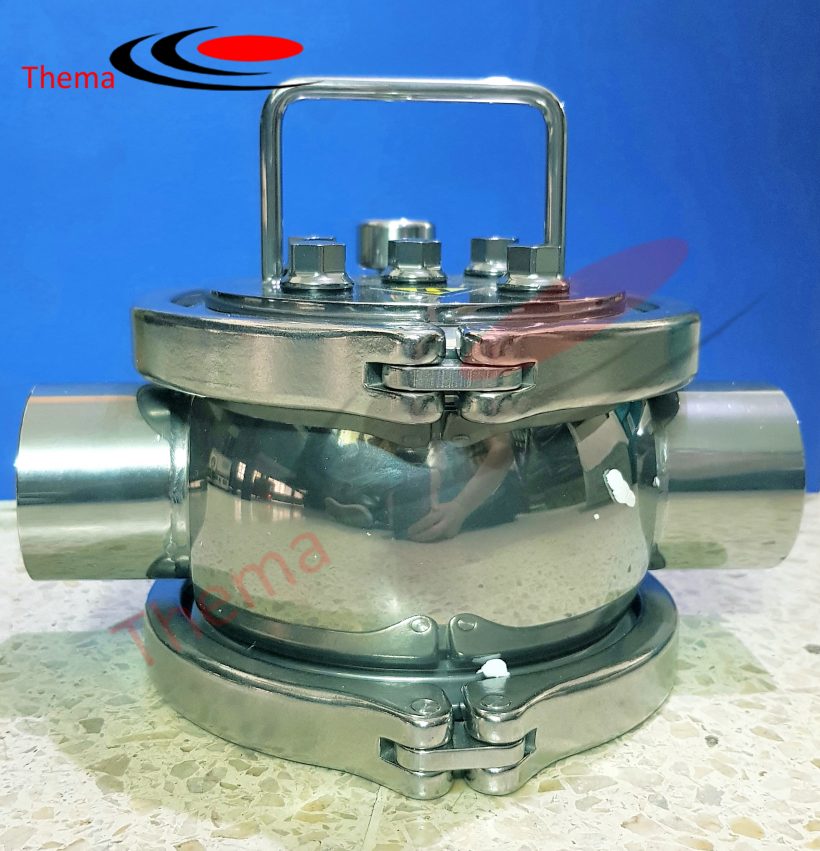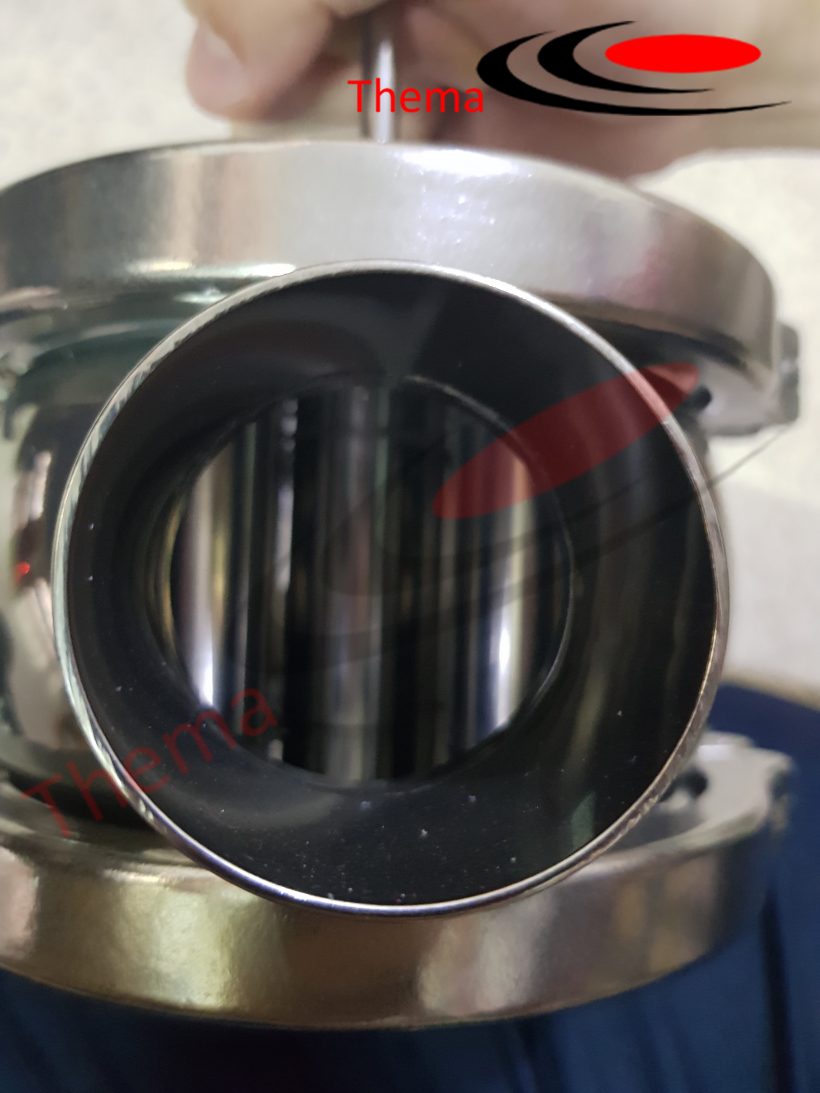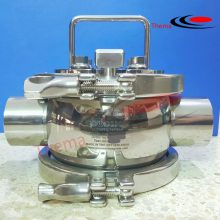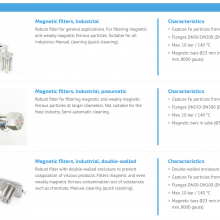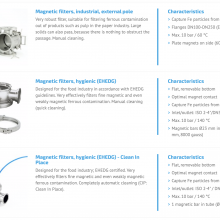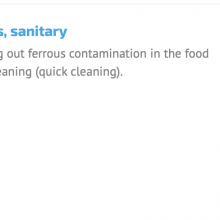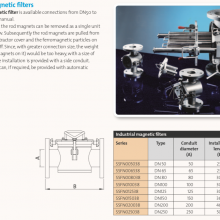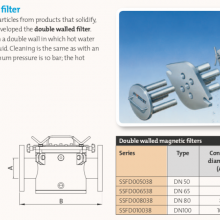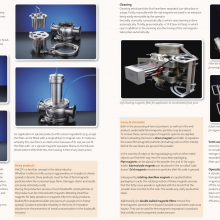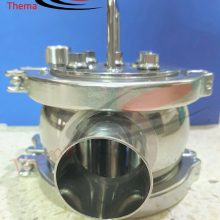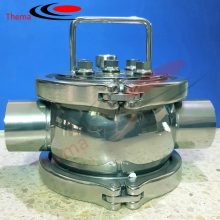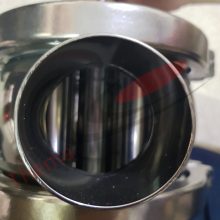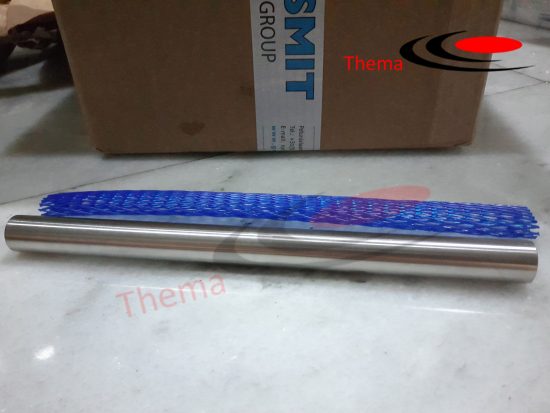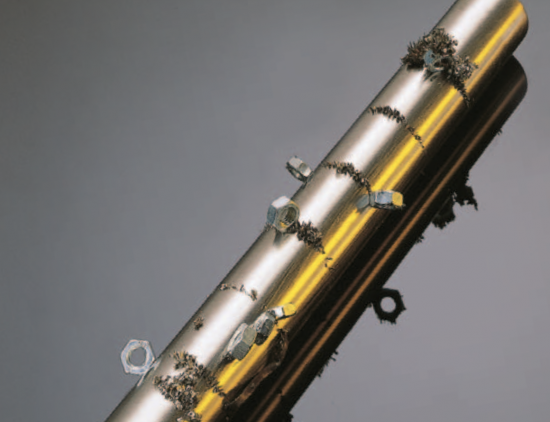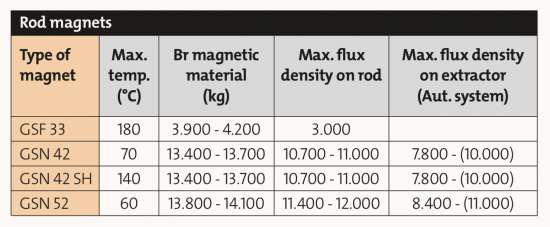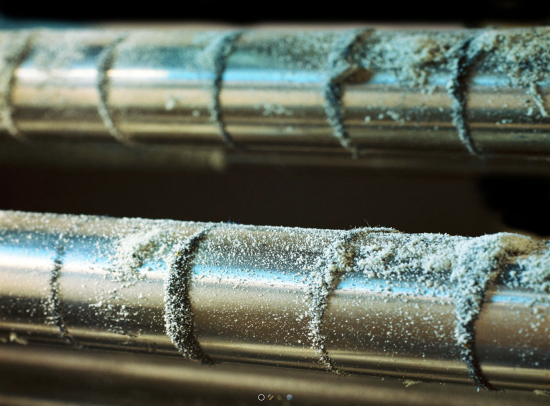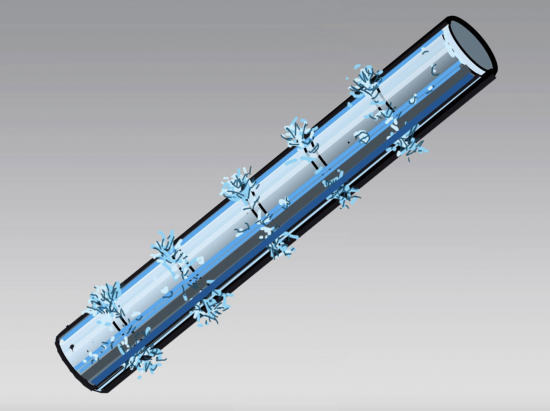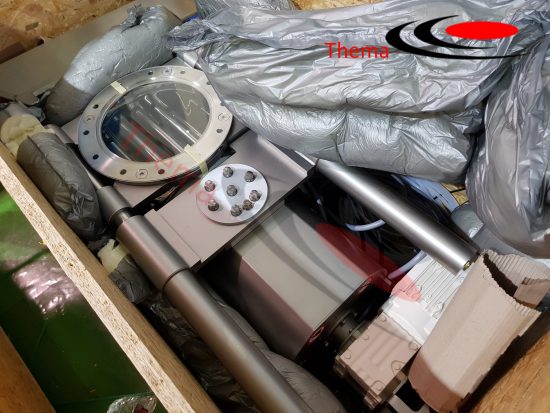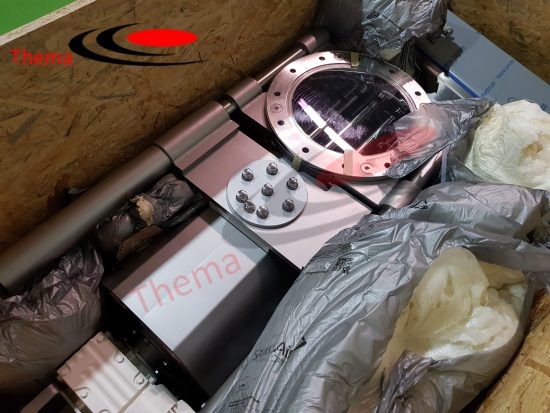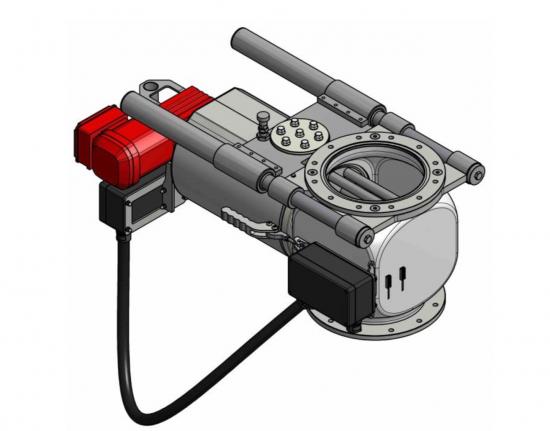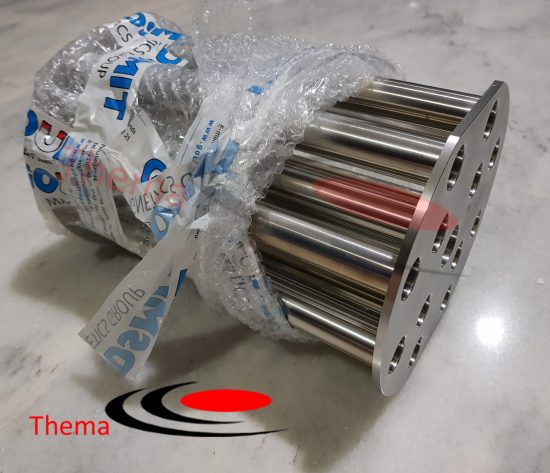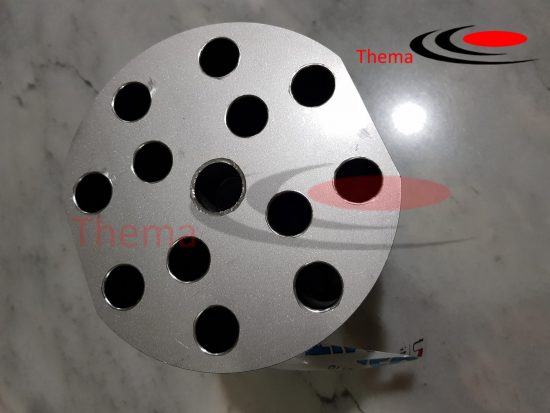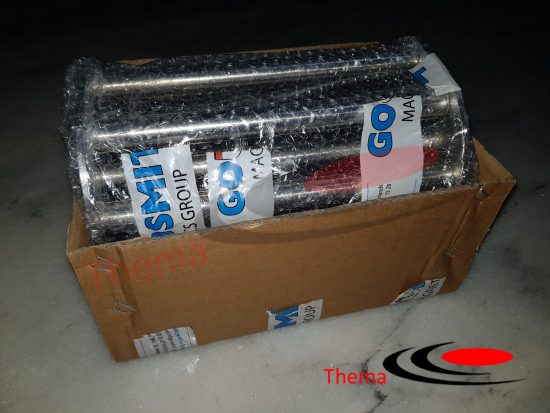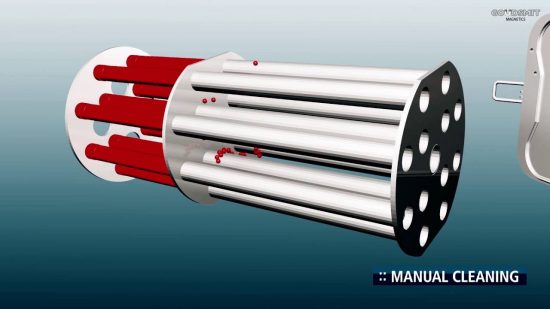Goudsmit Magnetic Filter
The Goudsmit Magnetic Filter Characteristic :
Application
Inline magnetic filters (magnetic basket strainers or pipeline magnets) filter ferromagnetic metal contaminants, such as iron and steel, as well as weakly magnetic particles, such as residue from machined stainless steel, from liquids and powders that are transported under pressure.T he specifications for every magnetic filter are: test pressure 15 bar, max. operating pressure 10 bar. The powerful Neoflux® (neodymium) magnetic bars are located in the product flow and can filter out even the smallest Fe particles – down to 30 microns – and weakly magnetic particles (stainless steel residue). These extremely fine Fe and stainless steel particles are so small that they cannot even be detected with a metal detector. Our pipeline magnets are used in the food, pharma and ceramics industries, among others, for applications such as the deferrization of pigments or paints. They are also used in the ceramics industry to ‘clean’ glazes, to prevent the formation of ‘black specks’.
Design
Our standard version inline magnetic filters have multiple magnetic bars, mounted in a cascade arrangement, one after the other. This ensures that the product must contact or come very close to the magnetic bars. Most types of Goudsmit magnetic filters are designed with the magnetic bars located inside extractor tubes, making cleaning quick and easy. The pneumatic industrial filters and the hygienic CIP filters clean semi-automatically under pneumatic control. As such, they do not require an extractor, which results in higher field strength at the magnet and eliminates the possibility of bacterial growth.
Cleaning in Place
Good cleanability of the filters is important. The rod magnets are surrounded by stainless steel tubes, also known as extractors. The operators can easily remove the rod magnets from this extractor. If the magnetic field is absent, the ferromagnetic particles simply fall down from the extractor or can be rinsed off. CIP (Cleaning in Place) is also possible with the self-cleaning version.
Vegetable and fruit juices
Despite many prevention measures, in practice metals are still found in fruit juices. The placement of a metal detector does not resolve this problem because the detector cannot recognize smaller metal particles. Application of super strong Goudsmit magnetic filters (composed of Nd-Fe-B rod magnets) ensures an efficient separation of very small Fe particles and even Fe dust. The magnetic filters are manufactured in accordance to EHEDG guidelines and comply therefore with the stringent requirements of the foodstuffs industry.
